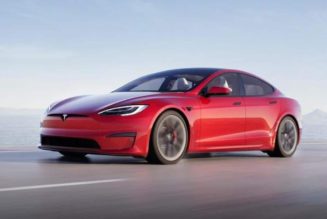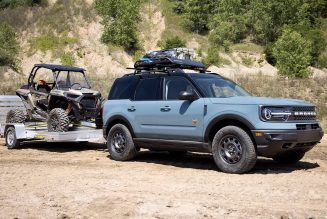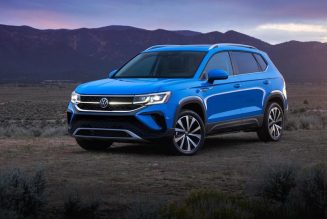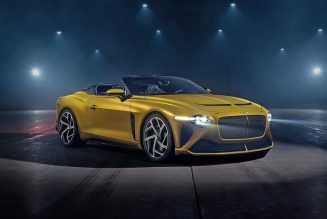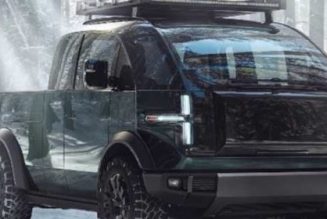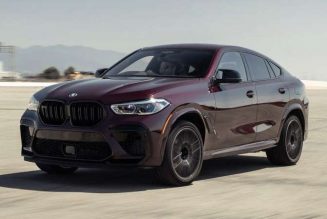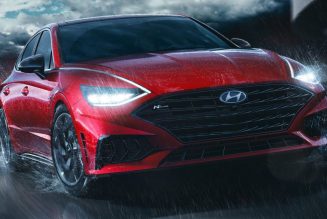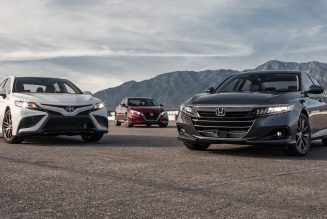Pros
- Weak-in-the-knees looks
- Phenomenal performance
- Drives like a Porsche should
Cons
- Inefficient in a market that demands efficiency
- Insufficient range
- Very pricey
The CliffsNotes summary of the electric Porsche Taycan is this: a staggeringly impressive vehicle that struggled against some of our Car of the Year criteria.
View Other 2021 Car Of The Year Contenders And Finalists Here
Remember, we employ six key criteria when evaluating cars during COTY, which is how the $26,000 Nissan Sentra is able to be in the same competition with a $146,000 electric Porsche. The Taycan knocked several of those criteria out of the park. But let’s get the bad stuff out of the way first.


“You are looking at the least efficient fully electric vehicle currently produced today, period,” Zach Gale said. “How do you spin that?” Long answer short, you can’t. The Taycan Turbo S gets 68 mpg-e, whereas a comparable Tesla Model S P100D achieves 98 mpg-e. Gale continued: “You shouldn’t get a prize for just showing up.” Harsh but accurate.
The same can be said for the Taycan’s range, with the EPA rating the 4S model at 203 miles. That’s bad. The Turbo S is rated at 192 miles. That’s worse. Now, we know the EPA range ratings are off—we achieved 254 miles twice in two tests—but even that result is 100 miles less than you’d get with that Tesla. Also, we all hate the shadeless glass roof. Now, onto the good stuff.
“What a special vehicle,” MotorTrend en Español’s Miguel Cortina said. “It feels like a Porsche in every single way. It’s engaging to drive, confidence-inspiring, and elegant.” That’s perhaps the sensation that struck all of us the hardest. Both Taycans felt like Porsches. Editor-in-chief Mark Rechtin explained it like this: “Despite all the corporate speak about ‘Our DNA,’ most electric vehicles don’t feel anything like the automaker that built them. If anybody was trying to create a seamless transition from internal combustion to electric, Porsche has succeeded.” As good as the 4S was to drive, the $200K+ Turbo S was that much better. “What a silly, silly, wonderful car,” features editor Christian Seabaugh said.
Looking at the Taycan against our remaining criteria, it could be named Car of the Year just because of advancement in design. Have you ever seen a better-looking sedan? Sure, it’s not quite as fist-bitingly gorgeous as the Mission E concept unveiled at the 2015 Frankfurt auto show, but close enough. The front end perhaps has a touch of Lexus-itus, what with those black mascara drips flowing south from the headlights. But from the A-pillar back, the design is pure magic. Viewed from the rear, there’s an alien ship motif, almost like a Cylon Raider from the Battlestar Galactica reboot. A few judges had some valid concerns about the functionality of the interior (world’s worst rearview camera!), but none could deny the great design. Special props for the gold metal trim.
Then there’s engineering excellence. Let’s not confuse this with efficiency, though as Gale noted, they are intertwined in EVs. Fair, but we never hold ICE cars to this double standard. I’d like to also point out that this is the first fully electric car I’ve ever driven that drifts, meaning not only does Porsche allow you to turn everything off (Hey, Tesla, we’re staring at you), but Porsche’s engineers also took the time to make the Taycan drive like an actual car. A huge, massive achievement. This bodes so well for the future of EVs; even hardened haters would be smitten with how the Taycan drives.
“What a fantastic car,” Cortina said. “The acceleration, the handling, the steering—it all makes sense. It’s the car I want to continue driving for hours. It’s the one that gives you confidence at the wheel to keep going for more.” So what if it’s expensive and not very efficient? The Taycan’s a Porsche, after all.


| POWERTRAIN/CHASSIS | 2020 Porsche Taycan 4S, Turbo S |
| DRIVETRAIN LAYOUT | Front/rear motor, AWD |
| ENGINE TYPE | Permanent-magnet electric motors |
| VALVETRAIN | – |
| DISPLACEMENT | – |
| COMPRESSION RATIO | – |
| POWER (SAE NET) | 562, 750 hp (comb) |
| TORQUE (SAE NET) | 479, 774 lb-ft (comb) |
| REDLINE | Not indicated |
| WEIGHT TO POWER | 9.1, 7.0 lb/hp |
| TRANSMISSION | 1-speed auto (front), 2-speed auto (rear) |
| AXLE/FINAL-DRIVE RATIO | Front 8.05:1/8.05:1, Rear 8.16:1/8.16:1 |
| SUSPENSION, FRONT; REAR | Control arms, air springs, adj shocks, anti-roll bar; multilink, air springs, adj shocks, anti-roll bar |
| STEERING RATIO | 14.2-9.3:1 |
| TURNS LOCK-TO-LOCK | 2.5 |
| BRAKES, F; R | 16.5-in vented, drilled, 2-pc carbon-ceramic disc; 16.1-in vented, drilled, 2-pc carbon-ceramic, ABS |
| WHEELS, F;R | 9.5 x 21-in; 11.5 x 21-in, forged aluminum |
| TIRES, F;R | 265/35R21 101Y; 305/30R21 101Y Pirelli P Zero PZ4 |
| DIMENSIONS | |
| WHEELBASE | 114.2 in |
| TRACK, F/R | 66.5/65.2 in |
| LENGTH x WIDTH x HEIGHT | 195.4 x 77.4 x 54.3 in |
| TURNING CIRCLE | 34.1 ft |
| CURB WEIGHT | 5,116, 5,221 lb |
| WEIGHT DIST, F/R | 49/51% |
| SEATING CAPACITY | 4 |
| HEADROOM, F/R | 38.2/36.8 in |
| LEGROOM, F/R | 41.8/32.2 in |
| SHOULDER ROOM, F/R | 56.4/53.2 in |
| CARGO VOLUME | 2.9 (front); 12.9 (rear) cu ft |
| TEST DATA | |
| ACCELERATION TO MPH | |
| 0-30 | 1.4, 1.0 sec |
| 0-40 | 2.0, 1.4 |
| 0-50 | 2.6, 1.9 |
| 0-60 | 3.4, 2.4 |
| 0-70 | 4.3, 3.0 |
| 0-80 | 5.3, 3.8 |
| 0-90 | 6.5, 4.6 |
| 0-100 | 7.8, 5.7 |
| PASSING, 45-65 MPH | 1.5, 1.1 |
| QUARTER MILE | 11.6 sec @ 121.9 mph, 10.3 sec @ 133.3 mph |
| BRAKING, 60-0 MPH | 107, 104 ft |
| LATERAL ACCELERATION | 1.03, 0.98 g (avg) |
| MT FIGURE EIGHT | 23.6 sec @ 0.84 g (avg), 23.6 sec @ 0.86 g (avg) |
| TOP-GEAR REVS @ 60 MPH | 5,950 (front); 6,050 (rear) rpm |
| CONSUMER INFO | |
| BASE PRICE | $105,150, $186,350 |
| PRICE AS TESTED | $146,040, $204,420 |
| STABILITY/TRACTION CONTROL | Yes/Yes |
| AIRBAGS | 8: Dual front, f/r side, f/r curtain, front knee |
| BASIC WARRANTY | 4 yrs/50,000 miles |
| POWERTRAIN WARRANTY | 4 yrs/50,000 miles |
| ROADSIDE ASSISTANCE | 4 yrs/50,000 miles |
| FUEL/BATTERY CAPACITY | 93.4 kWh |
| EPA CITY/HWY/COMB ECON | 68/71/69, 67/68/68 mpg |
| ENERGY CONS, CITY/HWY | 50/47, 50/50 kW-hrs/100 miles |
| CO2 EMISSIONS, COMB | 0.00 lb/mile (at vehicle) |
| RECOMMENDED FUEL | 120-/240-volt AC & 400-/800-volt DC electricity |
The post 2020 Porsche Taycan Pros and Cons Review: Digital Bloodlines appeared first on MotorTrend.


